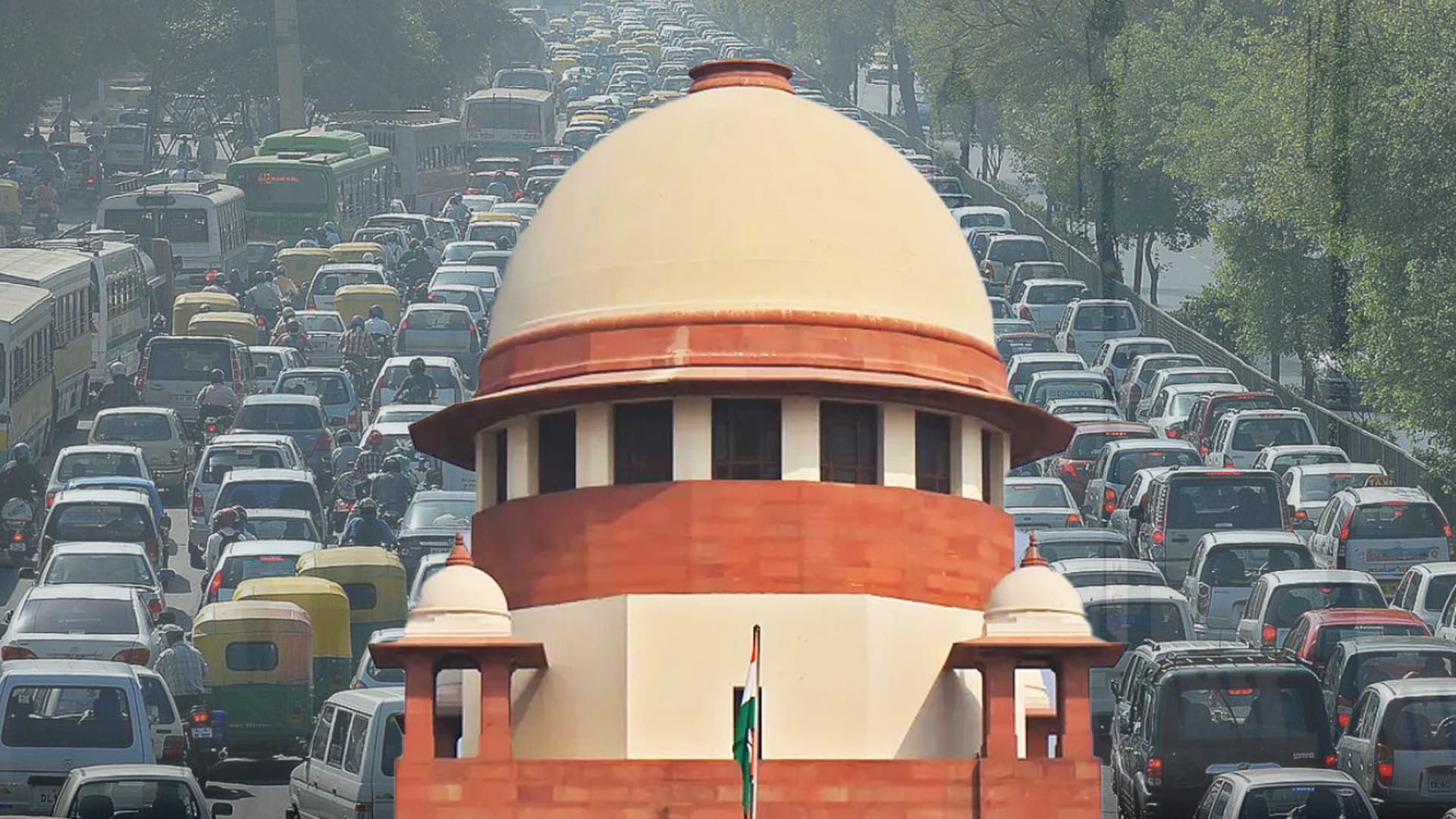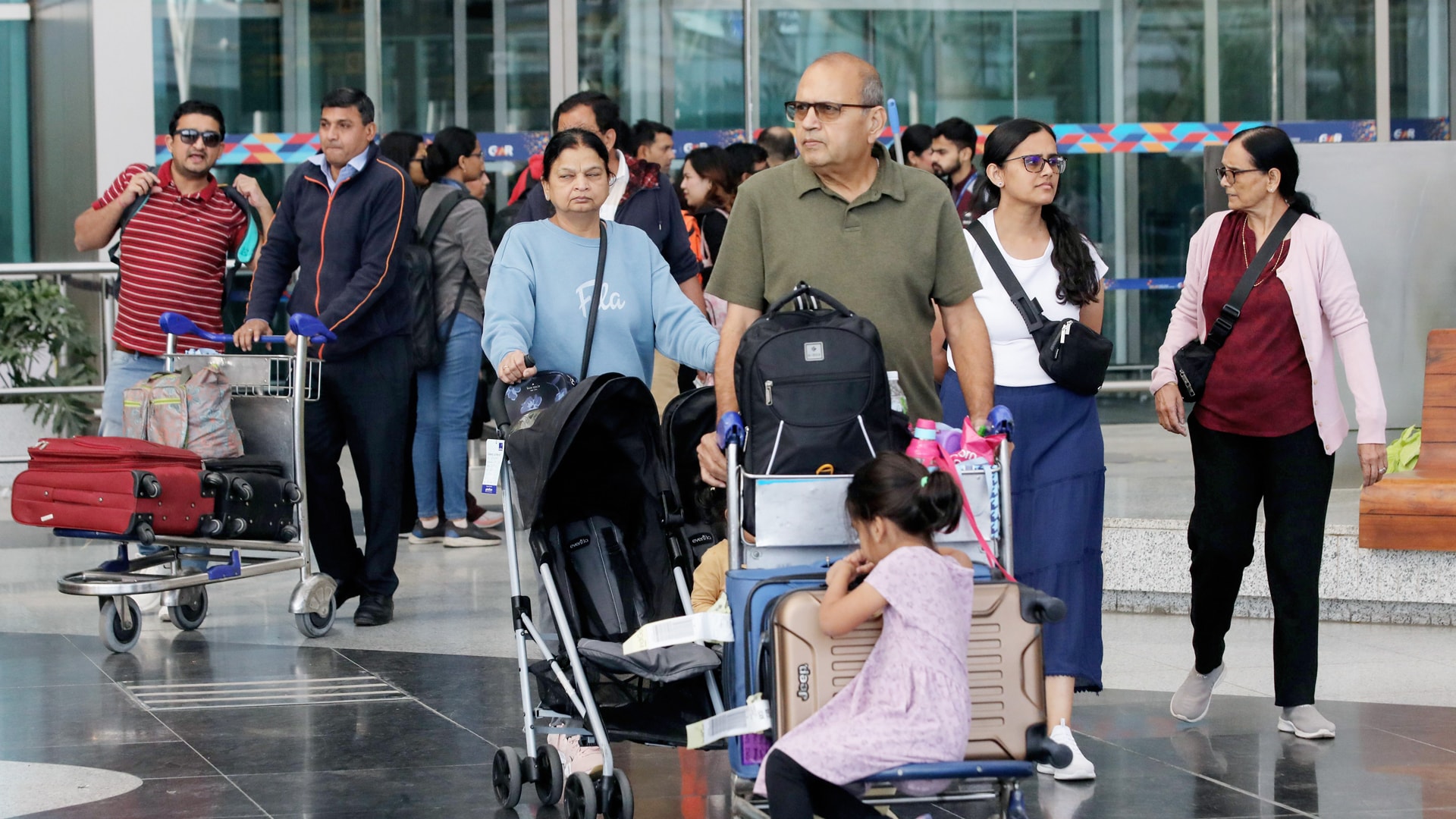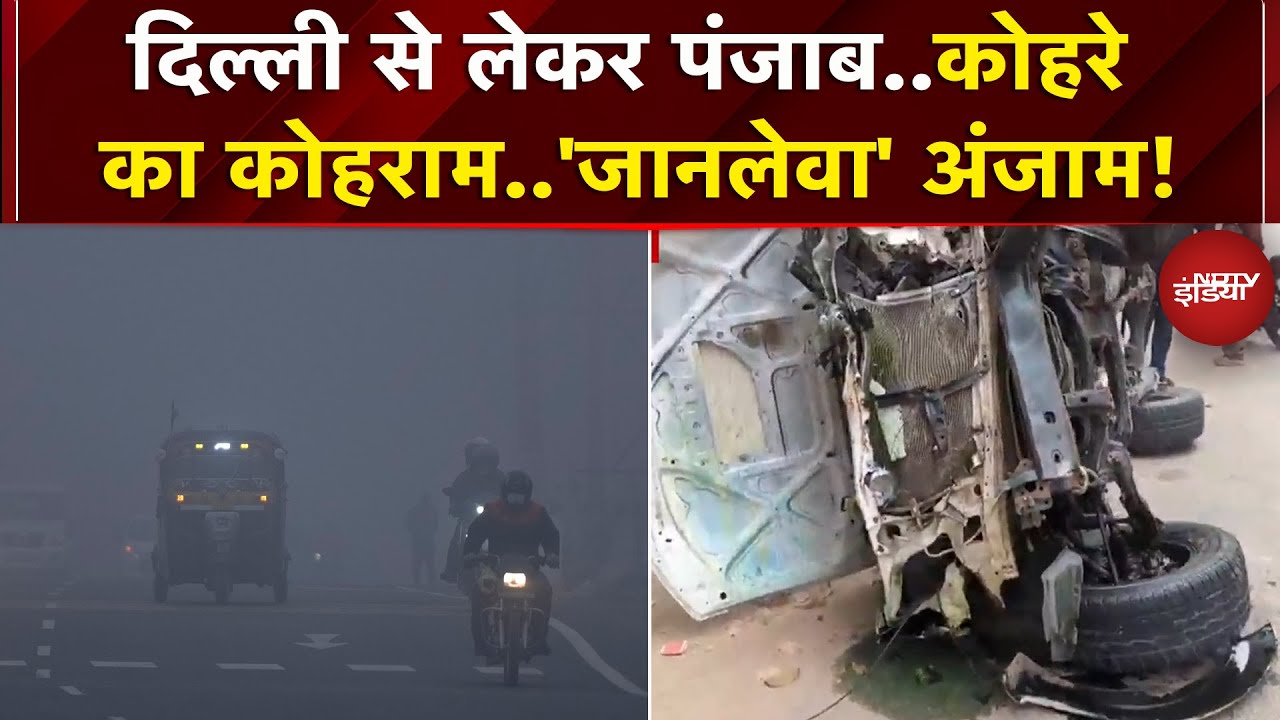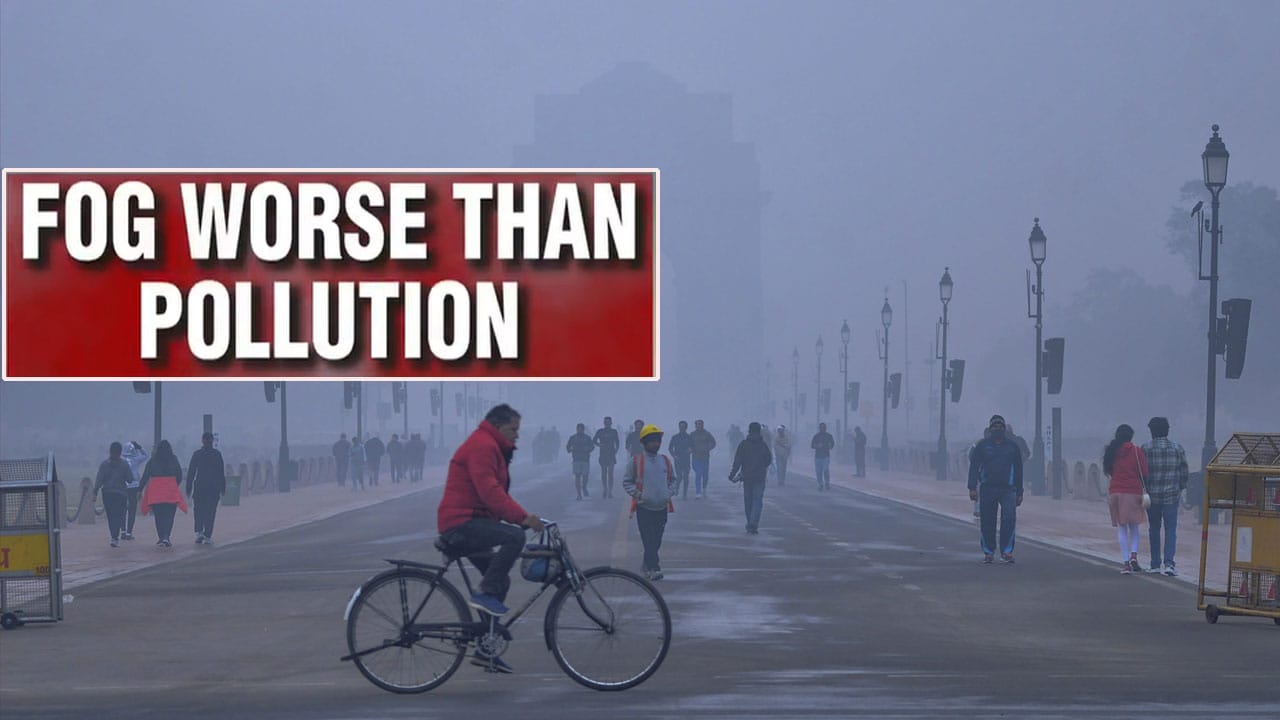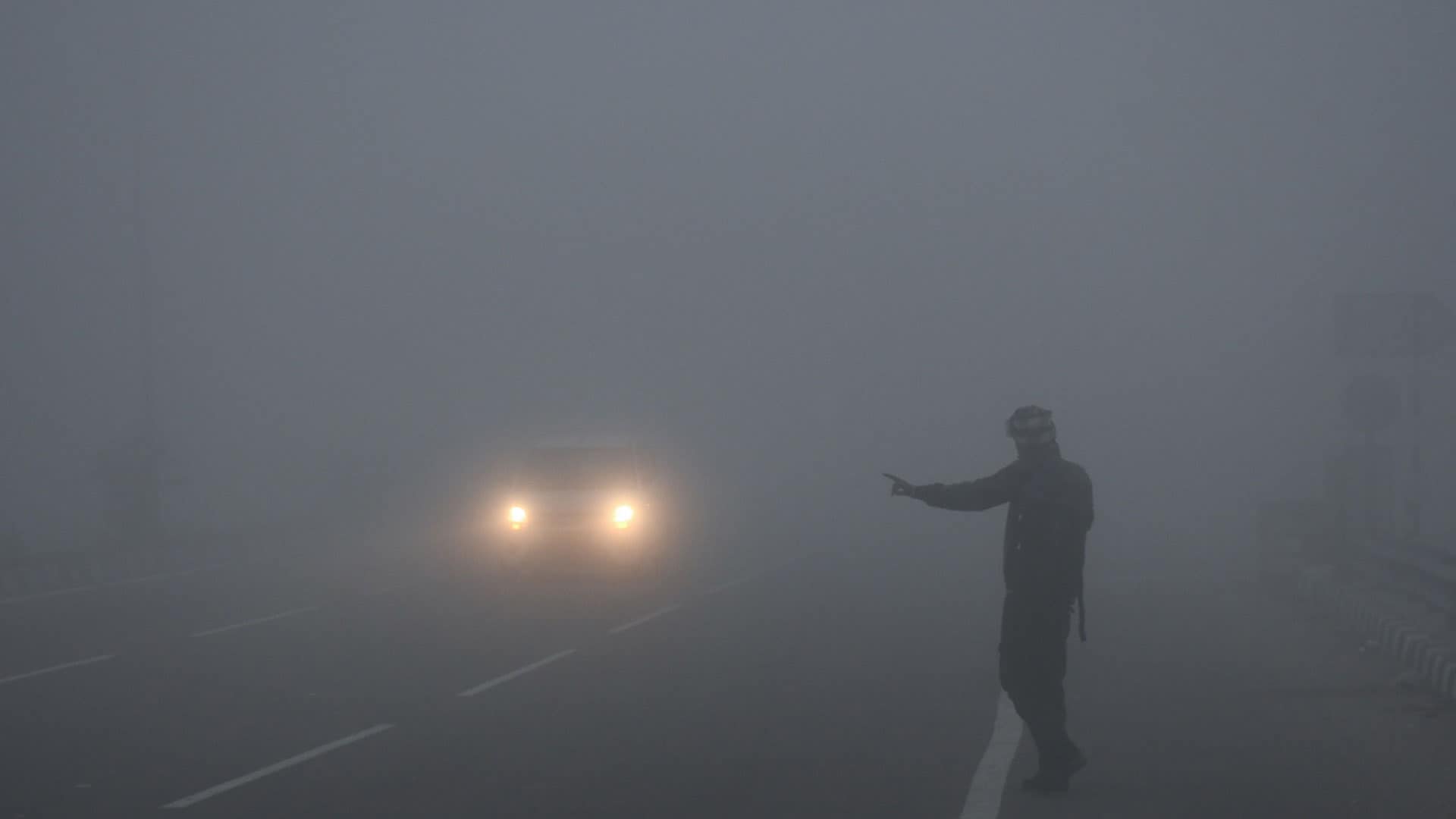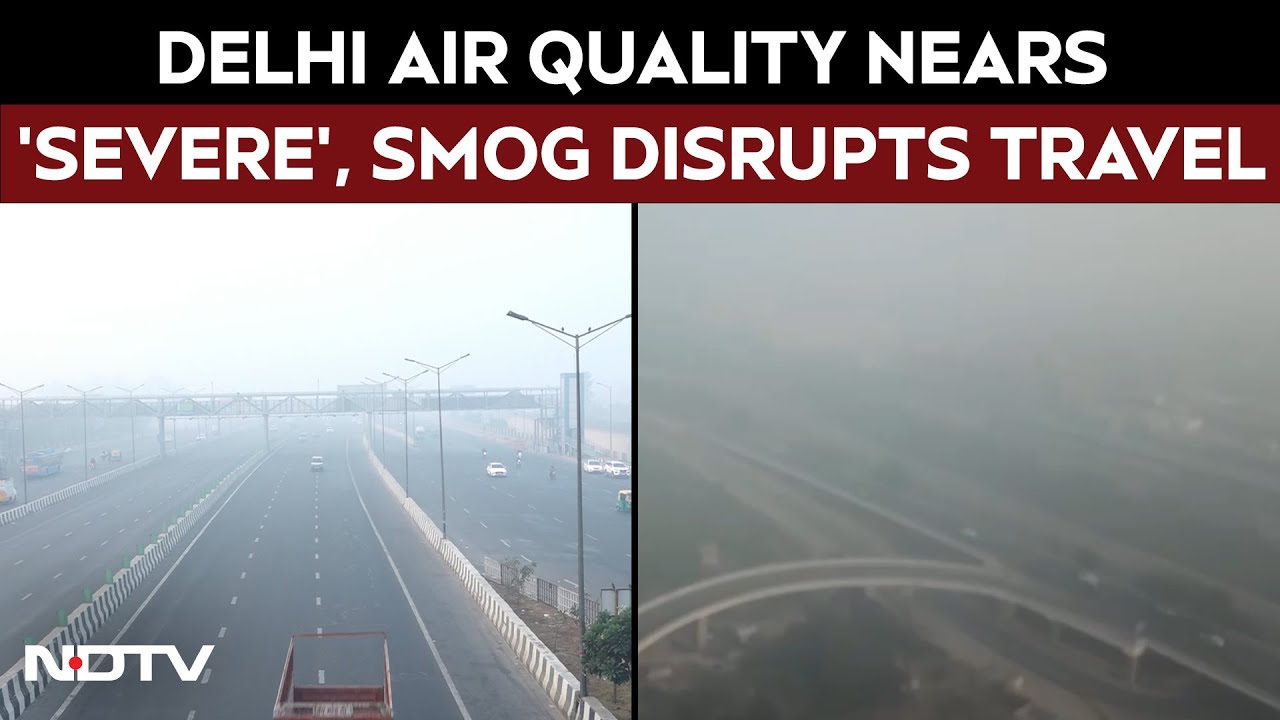- Home/
- 1.5 Million People Die Every Year Due To PM 2.5 Air Pollution: Report
1.5 Million People Die Every Year Due To PM 2.5 Air Pollution: Report

Fine pollution particles (PM2.5) may be responsible for 1.5 million additional premature deaths around the globe each year, according to a study which found that low levels of air pollution are dangerous than previously thought.
The World Health Organization's most recent estimates are that over 4.2 million people die prematurely each year due to long-term exposure to fine particulate outdoor air pollution referred to as PM2.5.
The latest study, published in the journal Science Advances, suggests that the annual global death count from outdoor PM2.5 may be significantly higher than previously thought.
That is because the researchers found that mortality risk was increased even at very low levels of outdoor PM2.5, which had not previously been recognised as being potentially deadly.
These microscopic toxins cause a range of cardiovascular and respiratory diseases and cancers.
"We found that outdoor PM2.5 may be responsible for as many as 1.5 million additional deaths around the globe each year because of effects at very-low concentrations that were not previously appreciated," said Scott Weichenthal, Associate Professor at McGill University in Canada and the lead author on the paper.
The researchers combined health and mortality data for seven million Canadians gathered over a twenty-five-year period with information about the levels of outdoor PM2.5 concentrations across the country.
Canada is a country with low levels of outdoor PM2.5, making it the perfect place to study health impacts at low concentrations.
Knowledge gained in Canada was then used to update the lower end of the scale that is used to describe how mortality risk changes with outdoor PM2.5 levels.
The study found an improved understanding of how air pollution impacts health on a global scale.
The WHO recently set out ambitious new guidelines for annual average outdoor fine particulate air pollution, cutting its earlier recommendations in half, from concentrations of 10 to 5 microgrammes (ug) per cubic metre.
"One take away is that the global health benefits of meeting the new WHO guideline are likely much larger than previously assumed," said Weichenthal.
"The next steps are to stop focussing only on particle mass and start looking more closely at particle composition because some particles are likely more harmful than others," he added.
A better understanding may allow us to be much more efficient in designing regulatory interventions to improve population health, the researchers added. PTI SAR SAR
(Except for the headline, this story has not been edited by NDTV staff and is published from a syndicated feed.)
also read
44% Indian Cities Face Chronic Air Pollution, Only 4% Under National Clean Air Programme
Press Trust of IndiaDelhi's Toxic Winter Air May Carry Drug-Resistant Superbugs, Study Warns
Written by Shreya GoswamiCentral Pollution Body Pulled Up By Supreme Court Over Tardiness, Adjournment
Reported by Nupur Dogra
Latest Stories
- Press Trust of India | Friday January 09, 2026 , New Delhi
The PM2.5 assessment for 2025 ranks Byrnihat (Assam), Delhi, and Ghaziabad (Uttar Pradesh) as India's top three most polluted cities with annual concentrations of 100 g/m, 96 g/m, and 93 g/m, respectively.
- Written by Shreya Goswami | Wednesday January 07, 2026
A study by Jawaharlal Nehru University finds that Delhi's polluted winter air carries high levels of antibiotic-resistant bacteria or superbugs far above safe limits, posing public health risks, especially for vulnerable groups and those with chronic
- Reported by Nupur Dogra | Tuesday January 06, 2026 , New Delhi
The Commission for Air Quality Management or CAQM, was strongly reprimanded by the Supreme Court today, which said the pollution body was not taking the issues raised by the court seriously.
- Written by Shreya Goswami | Tuesday January 06, 2026
Bronchial asthma often worsens in winter due to cold air, pollution and infections.
- Asian News International | Sunday January 04, 2026 , New Delhi
Delhi's air quality continued to remain in the 'poor' category on Sunday, with the national capital recording an overall Air Quality Index of 248, according to data from the CPCB.
................................ Advertisement ................................
Latest Videos
Opinion
Blog | Well Done, Delhi. You've Turned Lung Sacrifice Into A Badge Of HonourSaikat Kumar Bose
Monday November 10, 2025Till some years back, Delhiites would ask angry questions to those in power about the capitals annual tryst with toxic air. This has changed. Those in the driving seat dont see the need to answer now.
Opinion | Why Indians Have Just Given Up On Air Pollution CrisisTanushree Ganguly
Friday December 20, 2024While some may argue that people in Delhi are now more aware of air pollution than they were a decade back, my rebuttal would be that awareness does not mean that people are concerned.
Opinion | You Must Outrage Over Filthy Air More Than Once A YearJyoti Pande Lavakare
Tuesday December 10, 2024Delhi welcomed us with monsoon rains and mangos. We were home. Fast forward a couple of years, in the winter of 2012, I found myself in denial about something other parents, mostly expats, were calling toxic air.
Opinion | Delhi's Air Pollution Situation Is Like A Bad MarriageNishtha Gautam
Friday November 22, 2024On a good day, such as today, the AQI reading in Delhi is 407. We are jubilant at the sickly sunshine trickling through the slightly dissipated smog. At least its not 1600.
दिवाली... पराली... सियासी जुगाली!Ashwini kumar
Monday November 18, 2024दिल्ली-एनसीआर में प्रदूषण का समाधान तो आज तक मिला नहीं. हर साल चिंतित होकर हम-आप सांसों की तकलीफ के साथ-साथ दिल और ब्लड प्रेशर के मरीज भी क्यों बनें?








